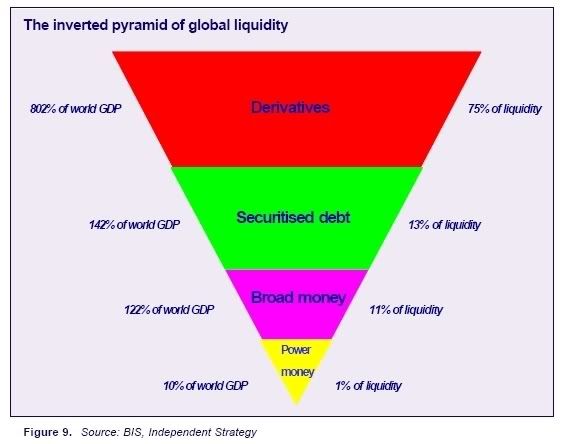
Notional Value
The total value of a leveraged position’s assets. This term is commonly used in the options, futures and currency markets because in them a very little amount of invested money can control a large position (have a large consequence for the trader).
For example, one S&P 500 Index futures contract obligates the buyer to 250 units of the S&P 500 Index. If the index is trading at $1,000, then the single futures contract is similar to investing $250,000 (250 x $1,000). Therefore, $250,000 is the notional value underlying the futures contract.
Credit Derivative
Privately held negotiable bilateral contracts that allow users to manage their exposure to credit risk. Credit derivatives are financial assets like forward contracts, swaps, and options for which the price is driven by the credit risk of economic agents (private investors or governments).
For example, a bank concerned that one of its customers may not be able to repay a loan can protect itself against loss by transferring the credit risk to another party while keeping the loan on its books.
Credit Default Swap
A swap designed to transfer the credit exposure of fixed income products between parties.
The buyer of a credit swap receives credit protection, whereas the seller of the swap guarantees the credit worthiness of the product. By doing this, the risk of default is transferred from the holder of the fixed income security to the seller of the swap.
For example, the buyer of a credit swap will be entitled to the par value of the bond by the seller of the swap, should the bond default in its coupon payments.